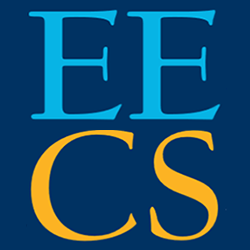EECS Major at UC Berkeley
UC Berkeley’s EECS (electrical engineering and computer science) program has earned a reputation for its excellence and prestige. However, the school is at the same time notorious for the rigor of its coursework. The amount of work every technical class expects of students is unparalleled; so is the despair accompanying every exam. Being an EECS major at UC Berkeley is analogous to toiling for long hours in front of a computer, either cramming course materials or finishing up a programming assignment. Today we’ll shed some light on what to expect, if you end up pursuing one of the most challenging and rewarding majors in college.

EECS major students at UC Berkeley have the option, after finishing all the required lower division courses to freely choose from the plethora of upper division courses as they wish. There are essentially three paths one can venture from there. For some it leans more EE-oriented, CS-oriented, or both.
This post shares the advice gained from a UC Berkeley EECS student who favored CS over the other two. Here are his five key takeaways:
1. Prepare to work your hearts out
There is obviously a lot to learn from the classes. And what better way to cement one’s comprehension of the materials, than applying the concepts taught to industry-related projects? Aside from written or coding homework assignments, students in computer science classes face projects of considerable size. Some can are group assignments, others individual. Pulling frequent all-nighters to complete assignments is the norm among EECS majors.
Exams are typically students’ nightmare. Professors tend to focus on assessing students’ understanding of the fundamentals of a subject rather than their ability to answer questions they encountered in past assignments or exams. Here’s an instance of the questions asked in an operating systems class – “show that deadlock can occur by listing an execution sequence ending in deadlock with explanation for each step.” This means that learning by rote memorization will do one more harm than good. Unlike exams in other classes, doing practice exams for CS classes are generally helpful but not essential while preparing for tests.
2. Collaborate with others
Although CS classes at UC Berkeley are notoriously competitive, it is not cutthroat. The competition stems from the fact that one’s grade is not determined on points of a 0-100 scale, but rather, how well one does relative to the rest of the class. However, this does not mean that students abhor giving an explanation to clear up another’s confusion, guiding others through to arrive at the solution to a problem or worse, soliciting a solution from other students with every chance they get.
Truth is, it is quite the contrary. In the EECS major at UC Berkeley, professors encourage collaboration. That’s why there are projects to let students work together and difficult homework assignments to foster studying in groups. Some may not recognize the incentive of working in groups in college but it definitely serves as a precursor to the collaborative environment that is imperative to every career.

3. Utilize the resources available
The homework and programming projects are designed to challenge students intellectually and rightfully so. Professors understand the significance of struggling through problem sets in order to truly master a particular concept. Hence, they assign difficult questions with only one intention – to ensure students learn the materials well. To make the process a wee bit more pleasant, there’s a bunch of teaching assistants in each class to aid students in times of need.
So don’t be afraid to approach them when necessary, either through emails or forums, or better yet, attend office hours when you run into a roadblock. The dedicated course staff excelled in the class when they took it and take pride in helping others. Talking to them will allow you to gain valuable insights into how they think about certain problems. Besides, they are also often happy to chat about their fields of interest, lo and behold, you may just land yourself a research opportunity!
4. Don’t get intimidated
Here, you are surrounded by the brightest minds from all over the world. It is easy to feel diminished for your intelligence simply because you were at the top of your class in high school, but so was everyone else. Being at Berkeley will probably set you back as an average student. You may meet some straight “A” students, or someone who had internships at top tech companies like Google or Facebook. If you do not accomplish what they did and attribute your own failure to your wits, know that you’re not alone.
It can be a painful realization but there are plenty to be grateful for, one of which being the chance to look up to some of your peers as well as the incredibly hardworking and motivated faculty as role models. Through interactions with them, not only can one obtain course advice, but one can also emulate their work ethic and apply that to various facets of life.
5. Know that the journey is worth it
EECS can be tough and it may not be for everybody. If you are interested in electrical engineering or computer science, then EECS at Berkeley is the way to go. Do not let the negativities deter you from doing what your heart desires. Other majors surely have their own untold horror stories too. But believe it or not, the rewards you reap along the way and the ones down the road will certainly make the entire journey all the more worthwhile.
Perseverance is really key to EECS. There will be times when you are stuck trying to find a bug in your program, figuring out how to derive an equation for a homework problem, or even when you do not get the internship you think you deserved. These experiences are nerve-racking, albeit not nearly as bad as not taking a stab at them. It is, after all through them that we learn to become a better version of ourselves.
Concluding…
EECS is a competitive major. Many of our college counselors have engineering and computer science backgrounds. Speak to a college counselor today to learn more!


